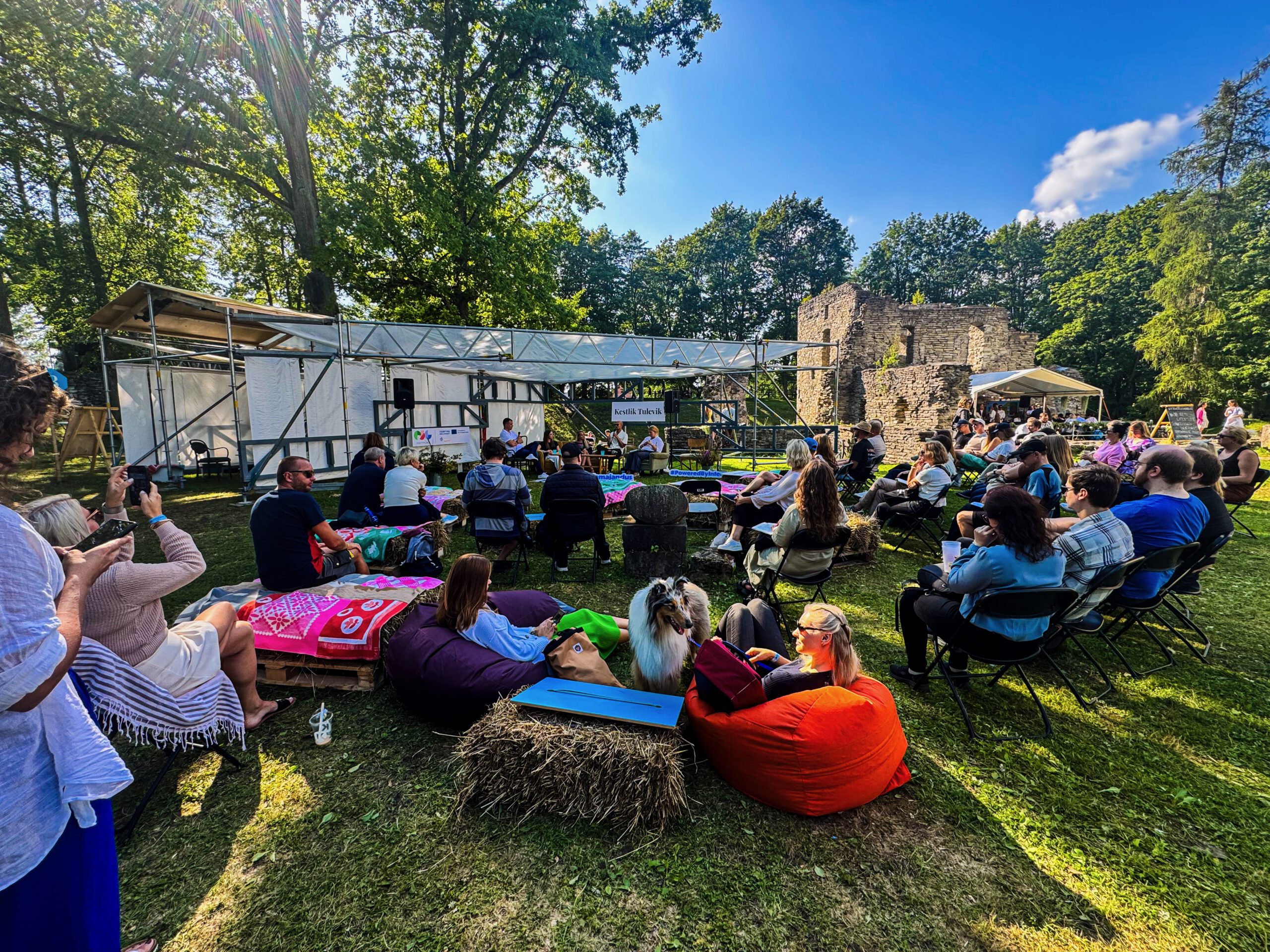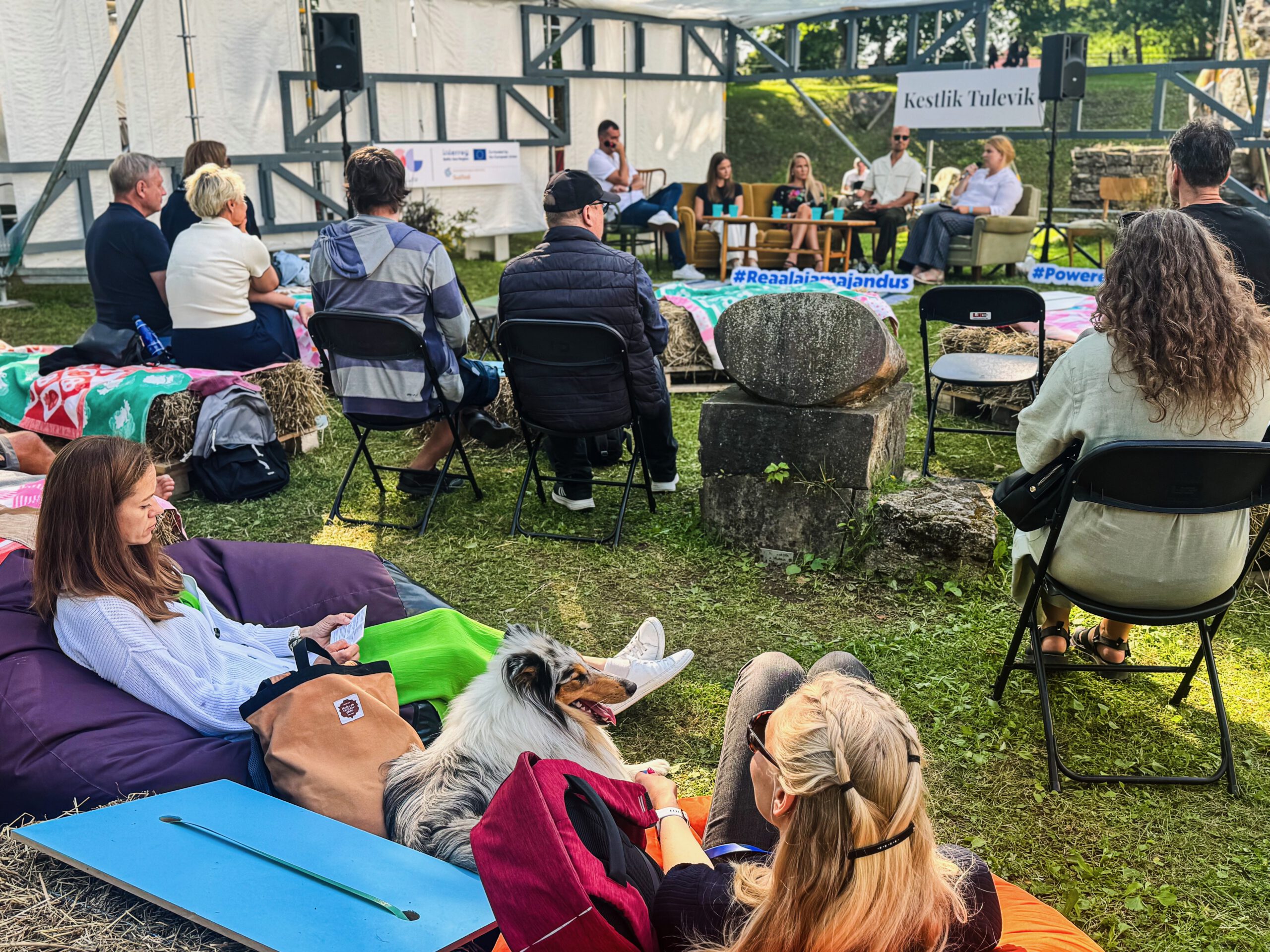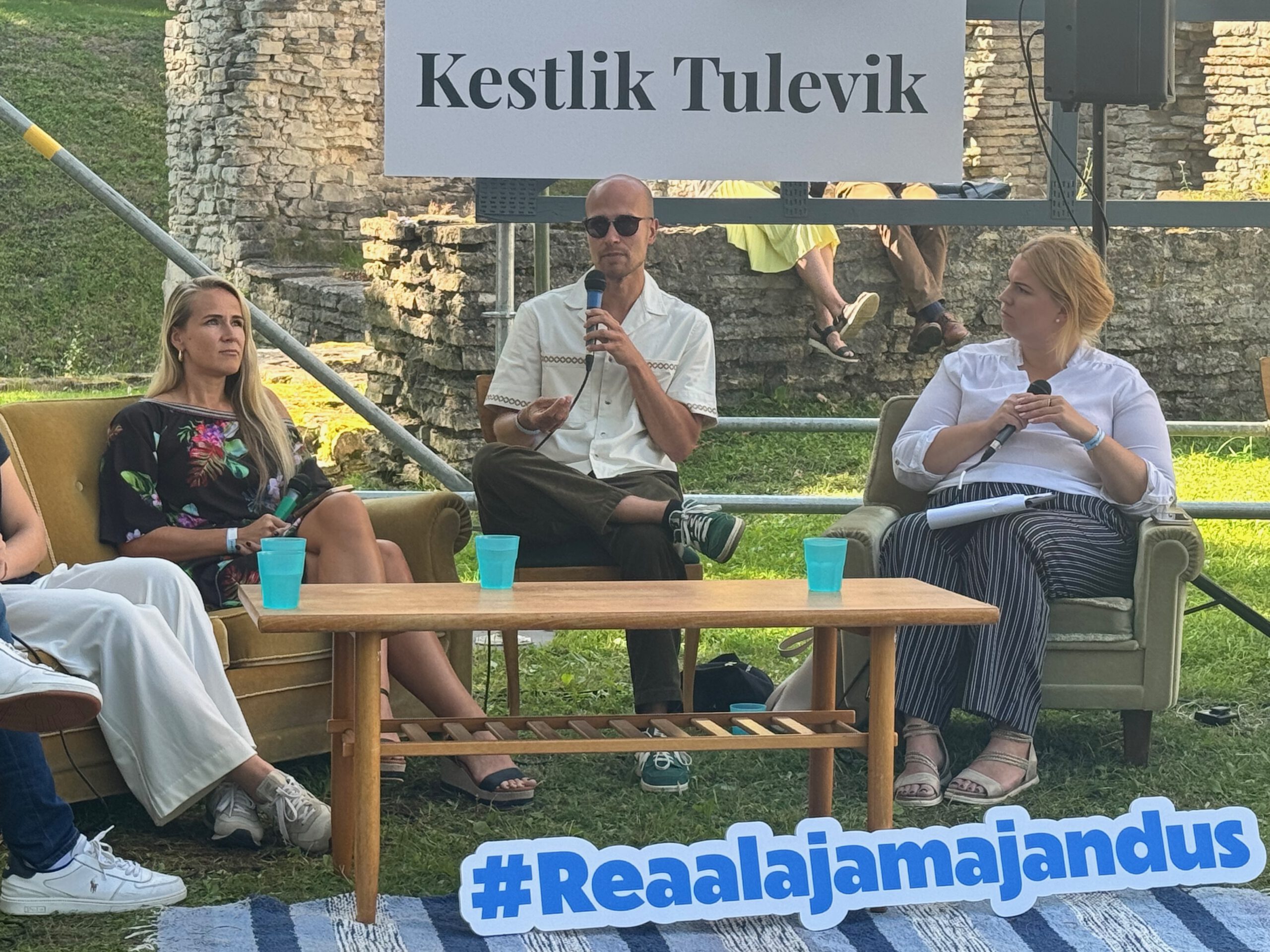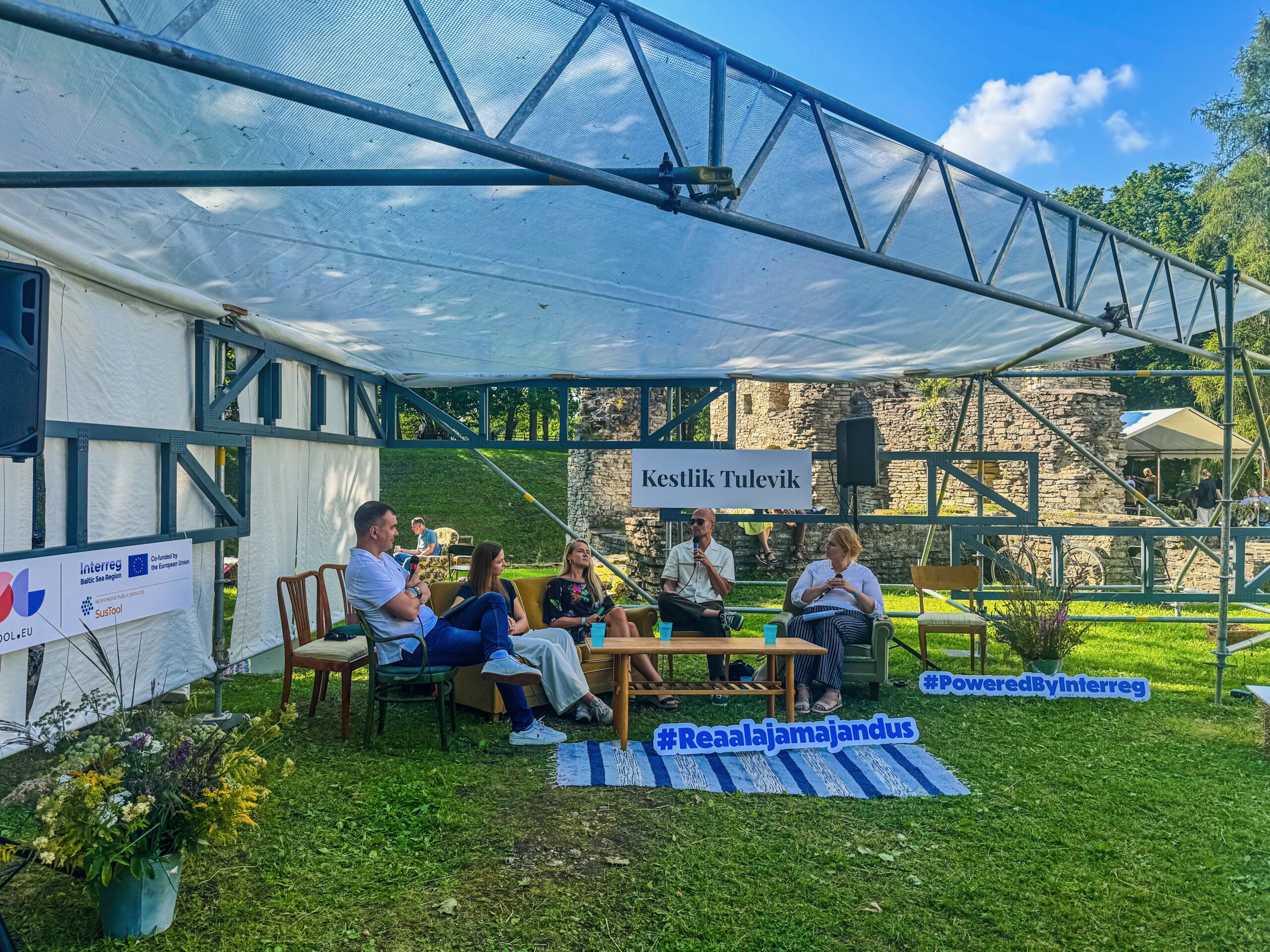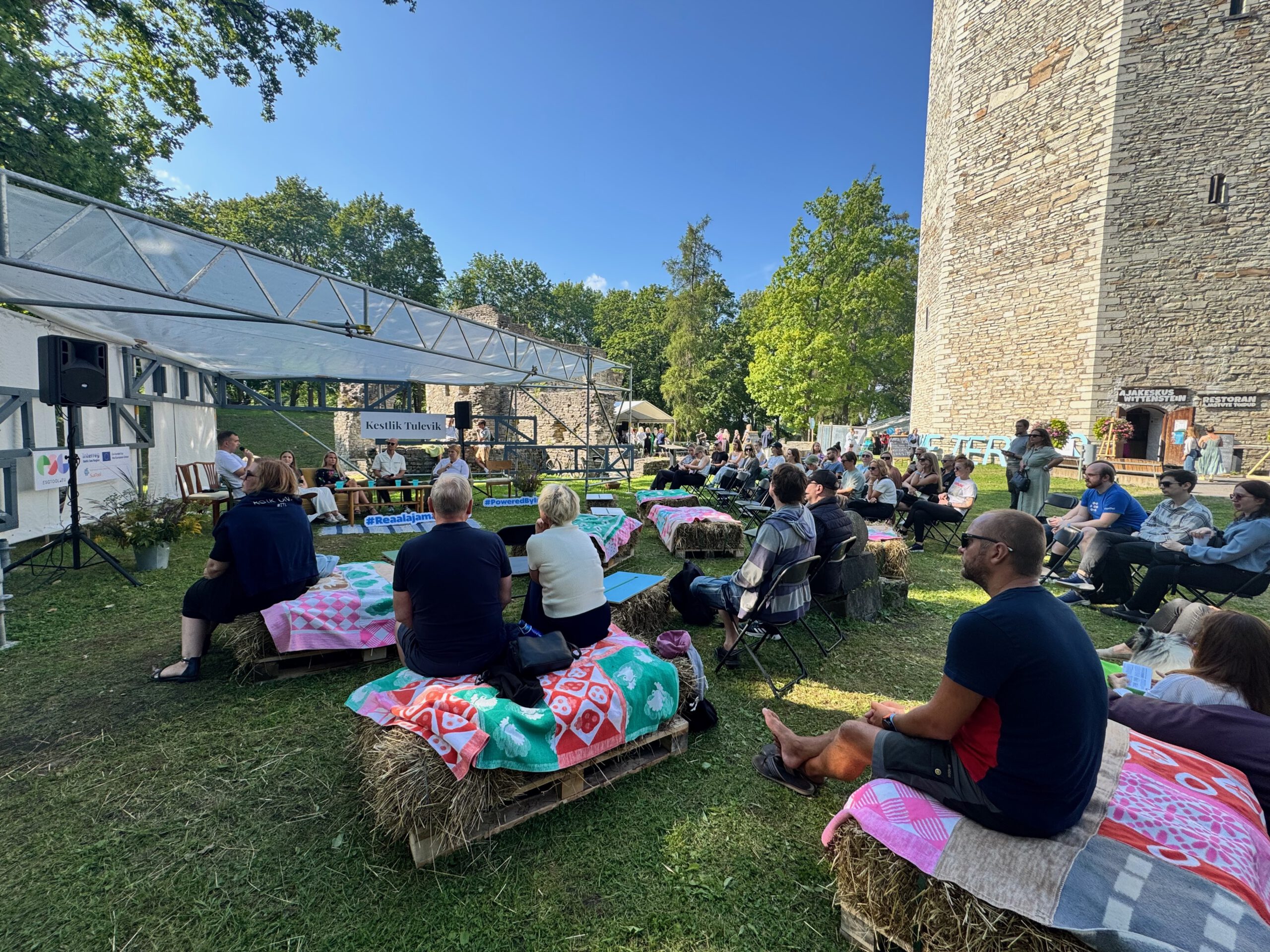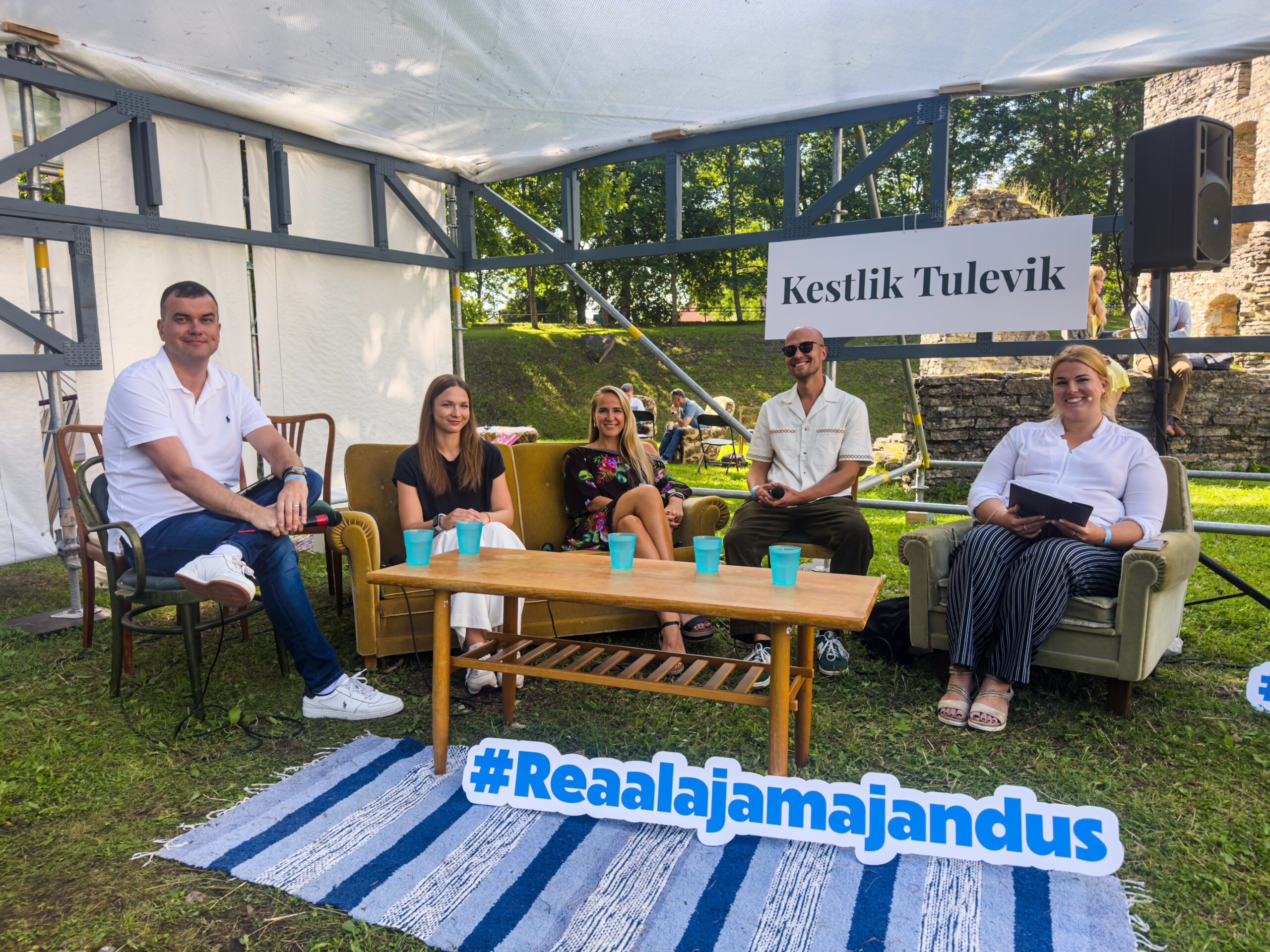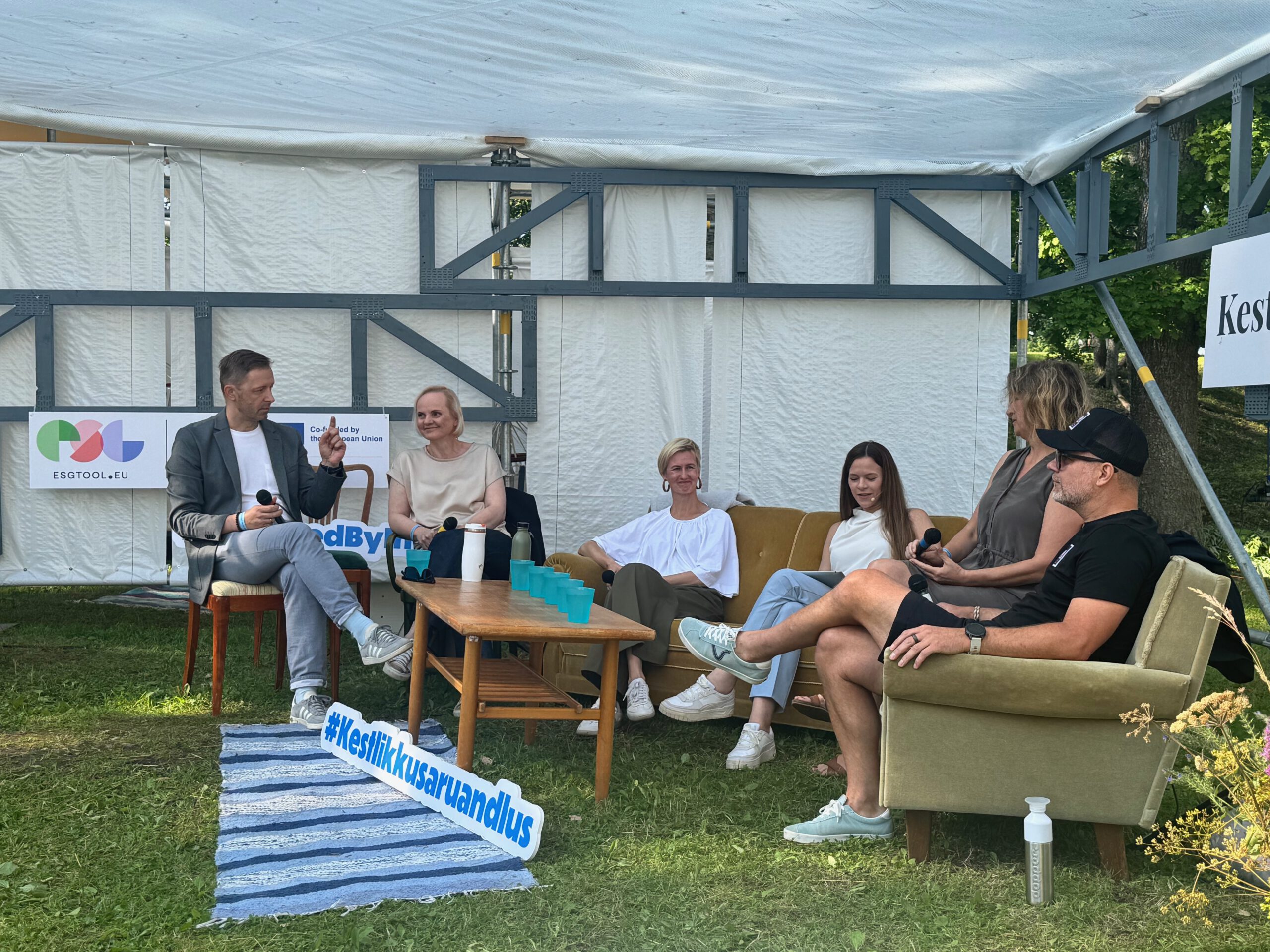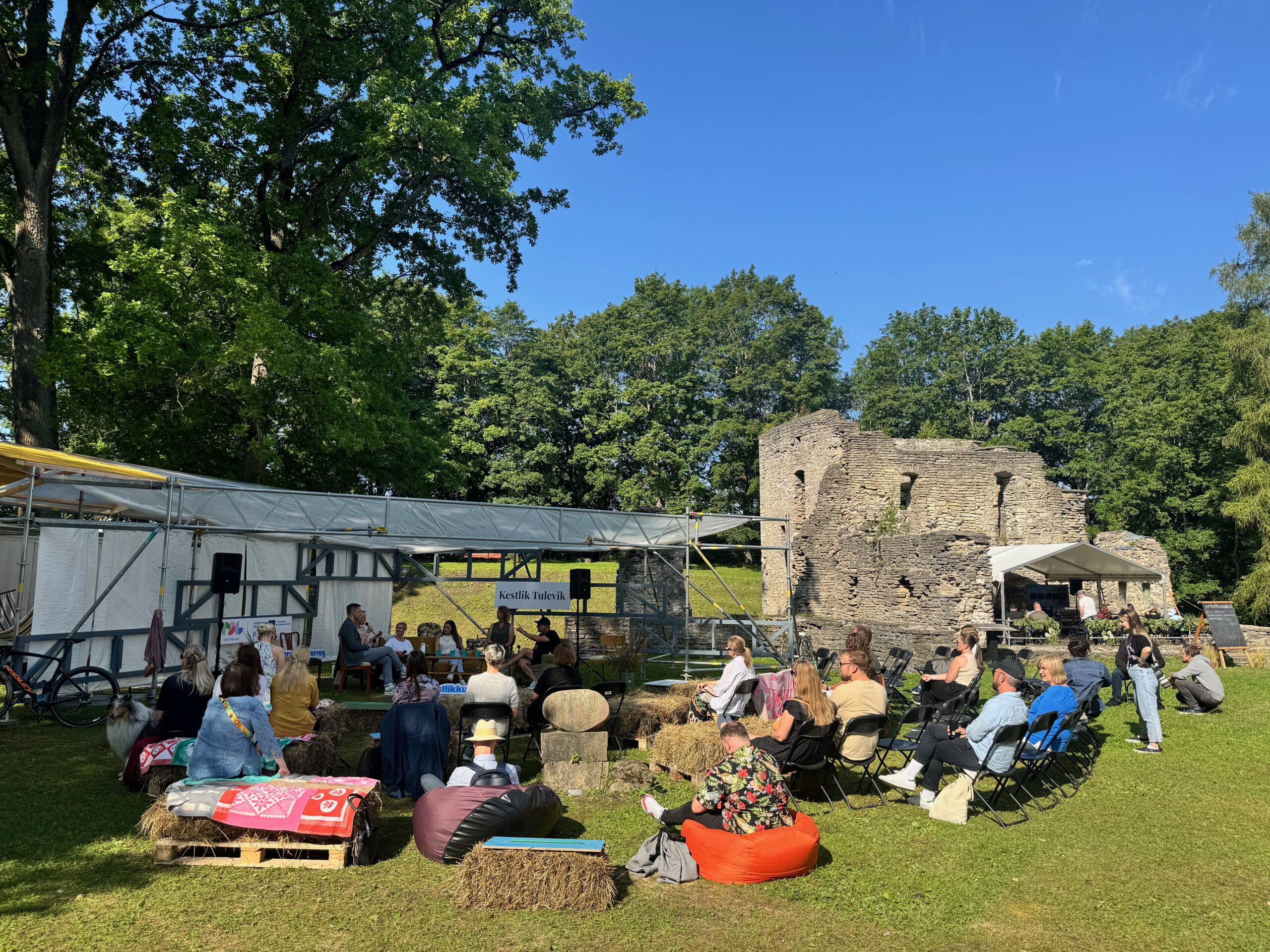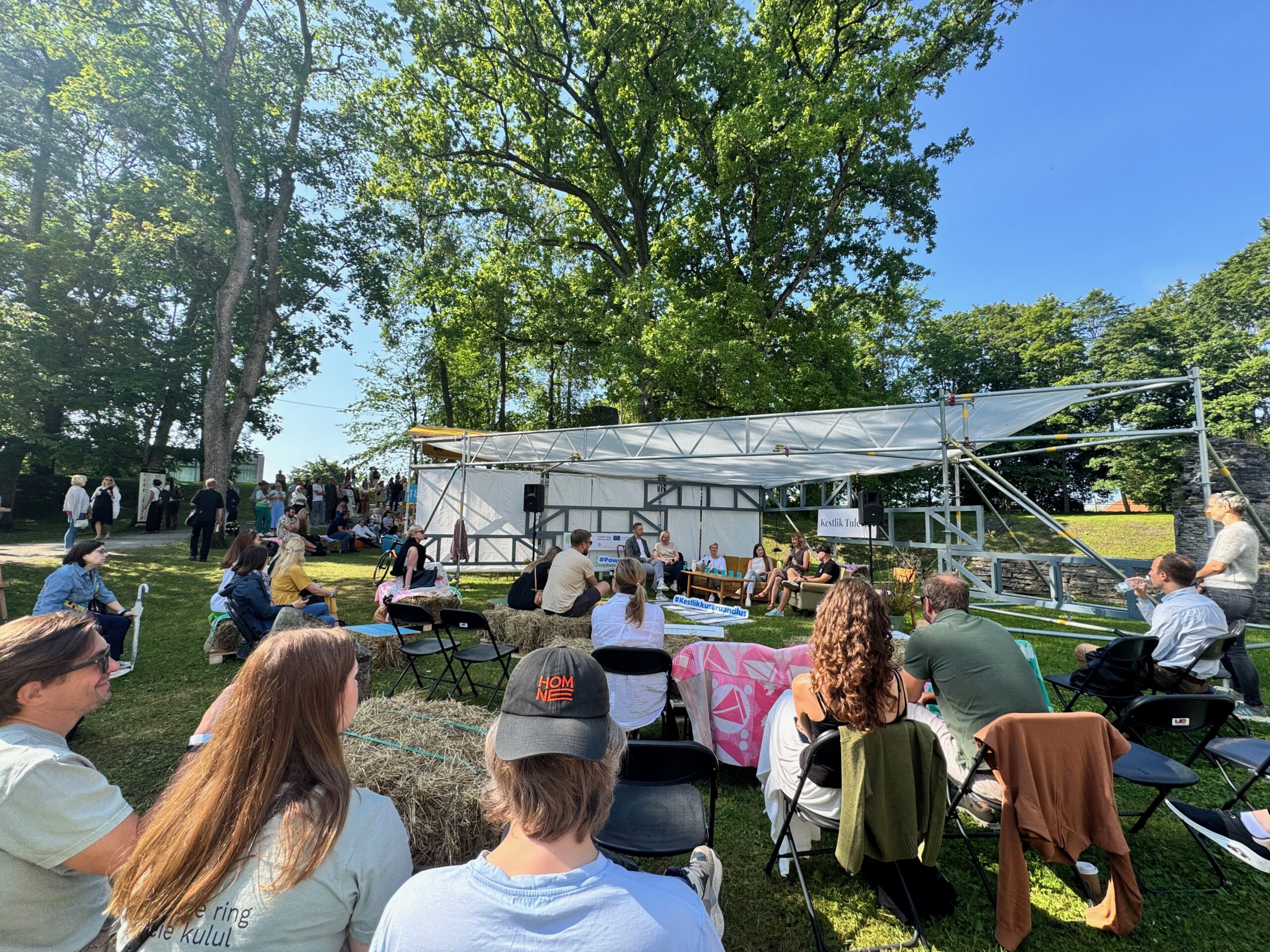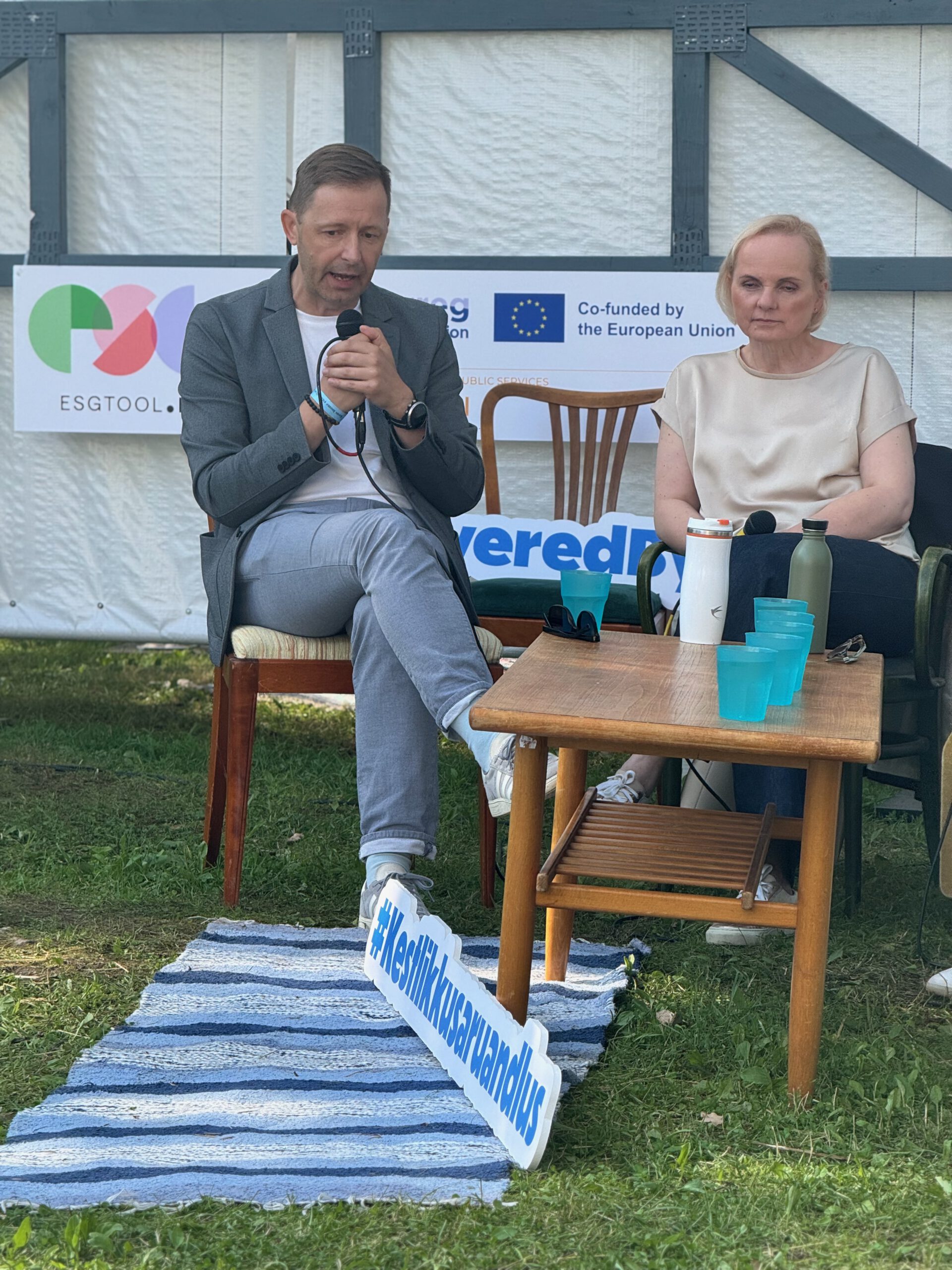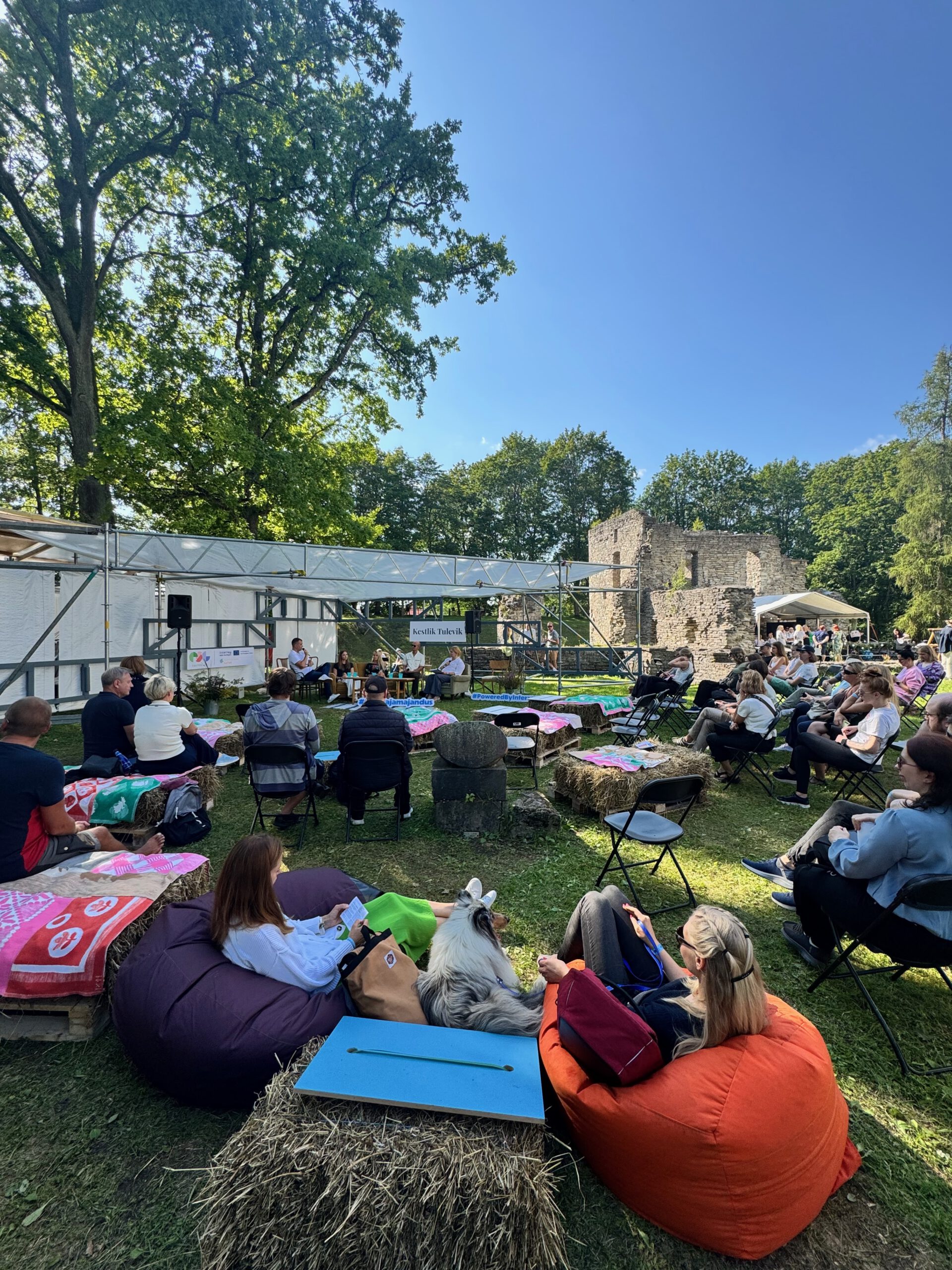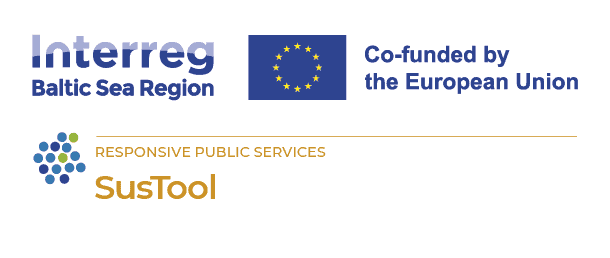
Sustainable future discussed at the Estonian Opinion Festival
29 August 2025
For the 13th time, the Estonian Opinion Festival invited everyone to listen, reflect, and engage on Paide Vallimägi, on August 8 and 9.
On Saturday, August 9, the Sustainable Future area hosted five discussions. The sessions were organized by the Estonian Ministry of Economic Affairs and Communications, the Ministry of Finance, Zero Waste Estonia, HI advisory, and the Estonian Association of Information Technology and Telecommunications (ITL). The Sustainable Future area at the Opinion Festival was supported by the Interreg Baltic Sea Region Programme.
Is sustainability reporting useful or just a burdensome obligation?
The Ministry of Finance led a discussion on whether sustainability reporting is a valuable tool for companies and society or merely a bureaucratic requirement. The audience agreed that reporting can be a competitive advantage if done with substance. Reports should primarily serve as a tool for companies themselves, helping them learn from the past and guide future planning.
So far, ESG standards have focused heavily on environmental issues, but participants stressed that ethics, social responsibility, and good governance deserve equal attention. Reporting alone does not change anything, as strategies, goals, and action plans create real impact. Large companies were seen as both obliged and able to be trailblazers in sustainability.
Estonia currently has around 400 large companies, of which 20 have been reporting for years under other standards. At present, 10 companies are required to report, while 16 have adopted it voluntarily. Without obligations, many companies might not engage, yet excessive requirements risk frustration and reduced willingness. Ultimately, sustainability reporting can build trust and responsibility if balanced, clear, and valuable for companies themselves, otherwise it risks becoming a box-ticking exercise.
If the only future is circular, do we still have business tomorrow?
HI advisory hosted a discussion on how circular economy reshapes business opportunities. Circularity is more than an environmental issue as it involves business models, product design, policymaking, and consumer habits. Inspired by nature, where nothing becomes waste, circular economy encourages products that are repairable, recyclable, and reusable. This is not only ecologically sound but also economically wise, as waste management costs rise when systems are poorly designed.
Examples from Estonia already exist. In Järvakandi, almost 100% recyclable foam glass aggregate is produced and used in road construction, lightweight concrete, and new buildings including Pärnu’s new bridge and the upcoming Loodusmaja in Tallinn.
Consumers and governments also play a crucial role. Many people already contribute to circularity without realizing it by sorting waste or avoiding single-use items. Raising awareness and state support can strengthen these practices. The clear takeaway was that circular economy is not a barrier to business but a source of new opportunities when companies, consumers, and the state work together.
Waste is the symptom, but what is the cause?
Zero Waste Estonia brought together a debate on whether waste is a personal failure or a systemic problem. Three main themes emerged.
The first was the role of municipalities and how local decisions shape circular practices and waste volumes. The second was household waste confusion, focusing on how to sort waste correctly and what really happens to it. The third was clothing and textiles, questioning whether a broken sock should be repaired, placed in a textile container, or thrown away.
Producer responsibility was also highlighted. In many sectors, producers already pay for the later management of their products such as electronics, packaging, and medicines, and soon this will include textiles. This means that if you put a broken sock into a textile container, the producer covers the cost, but if you throw it in mixed waste, you pay for it yourself.
Language also matters. Calling a facility a reuse station instead of a waste station makes it more inviting for people to bring items for repair or recycling. Waste is only the visible symptom, while the real causes lie in production, consumption, and systemic choices at both household and policy levels.
How can data shape a sustainable future?
The Ministry of Economic Affairs and Communications hosted a session on how data can help companies and governments act more sustainably. The challenge is not only collecting information but using it effectively for decisions and impact.
Today, entrepreneurs face numerous overlapping reporting obligations, often requiring the same data multiple times. A data-based reporting project is underway to reduce this burden, focusing on standardization and automatic data transfer. Out of 400 reporting requirements, 150 with the greatest impact are being streamlined.
Examples show the potential. Cloud-based services give even small businesses access to advanced tools, while AI speeds up the analysis of sustainability data, such as building energy efficiency. Still, the goal is direct and automatic data flow instead of lengthy PDF reports. Including sustainability requirements in public procurement could also send a strong market signal and drive companies toward smarter data use.
Data becomes a true driver of sustainable development only when it is used intelligently, shared effectively, and turned into a practical tool rather than just another reporting burden.
Women in technology, drivers of growth and sustainability
The Estonian Association of Information Technology and Telecommunications (ITL) hosted a discussion on how diversity, especially women’s participation, strengthens the technology sector and its contribution to sustainability. Women bring fresh perspectives, foster inclusive solutions, and show courage in taking responsibility, experimenting, and even failing.
Instead of quotas for company boards, participants suggested quotas in schools, ensuring early support and role models to increase future participation. Career shifts should be encouraged, since IT skills can be learned and domain expertise from fields like medicine or education is equally valuable. A common barrier for women is low self-confidence and impostor syndrome. The message was clear: take inspiration from men, know your strengths, and apply boldly.
Organizations can do more by providing flexible work arrangements, supportive leadership cultures, and active promotion of diversity. The tech sector constantly seeks talent, making now the right moment to consider how one’s skills and experience could contribute to this rapidly evolving field.
The Opinion Festival is a meeting place for all layers of society, giving a platform for different worldviews. Its mission is to improve debate culture and civic education. The Festival is free of charge and open to everyone in Estonia and beyond who would like to discuss and tackle issues that matter for all of us.







